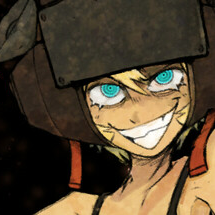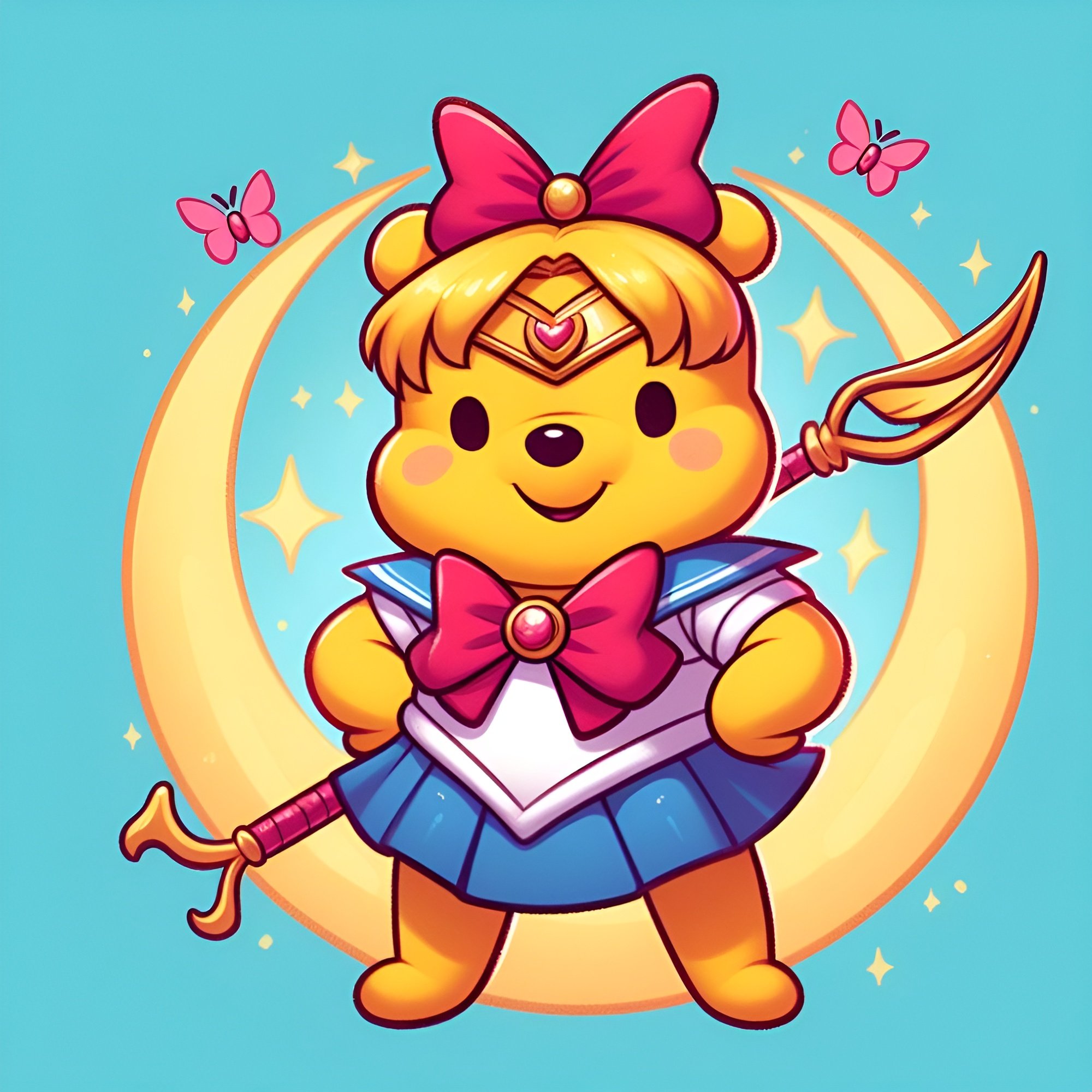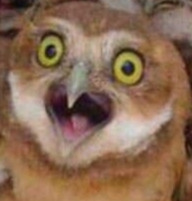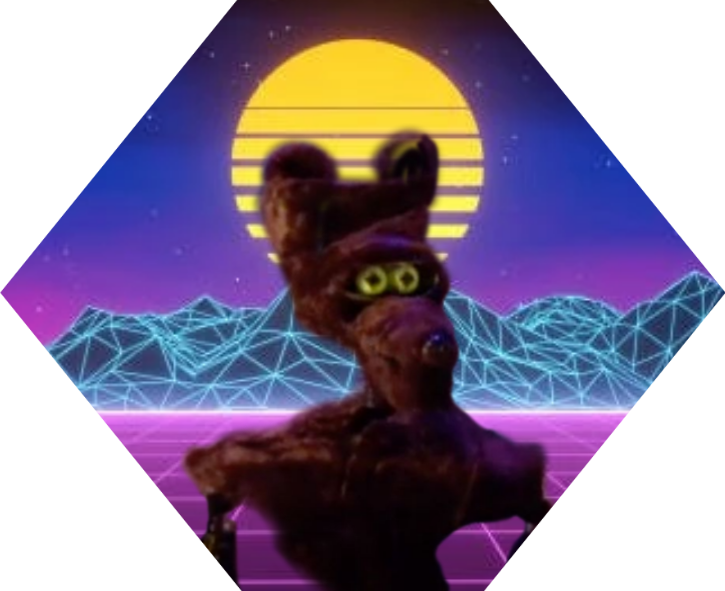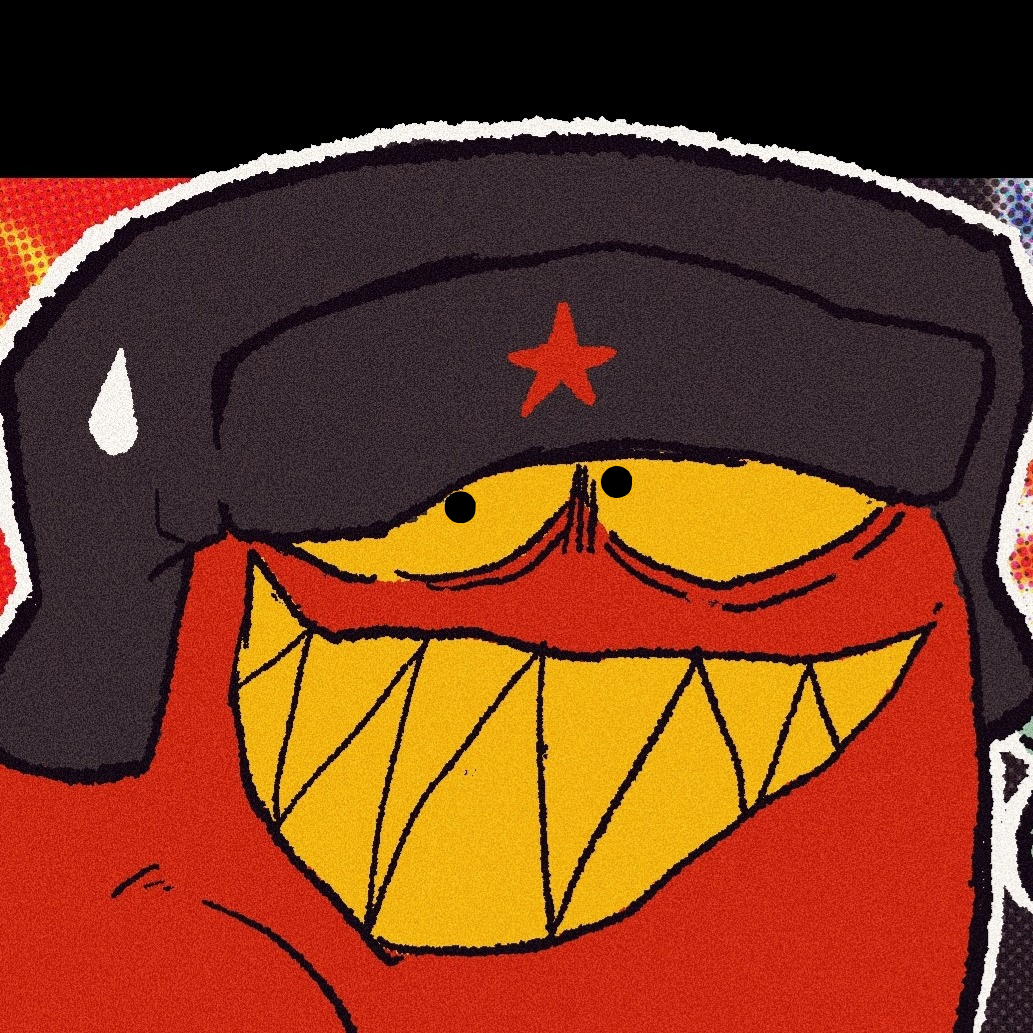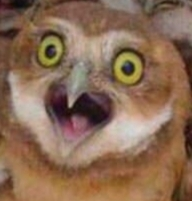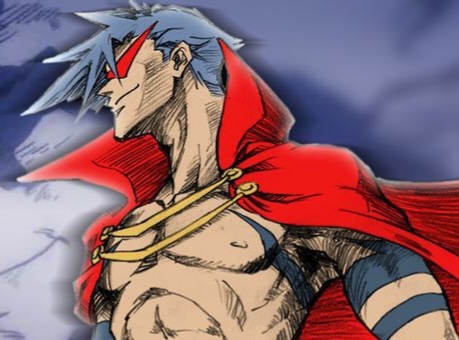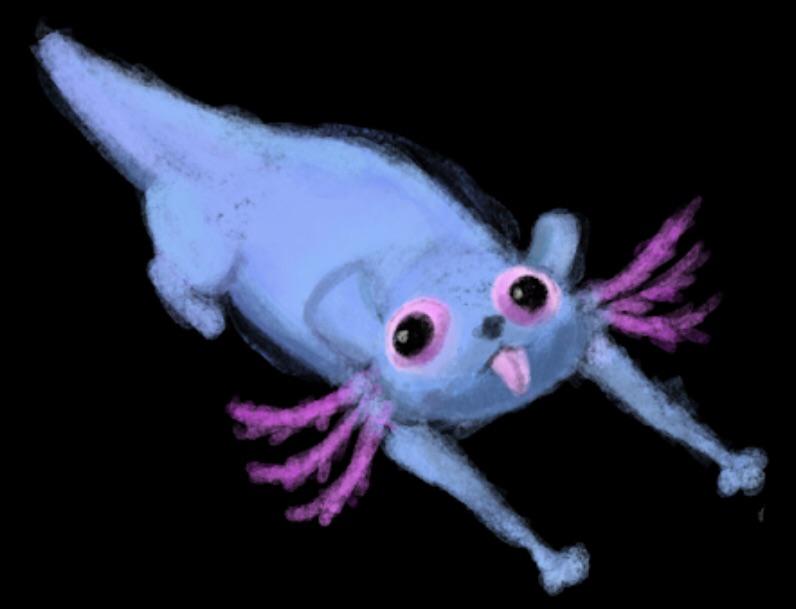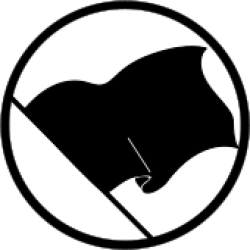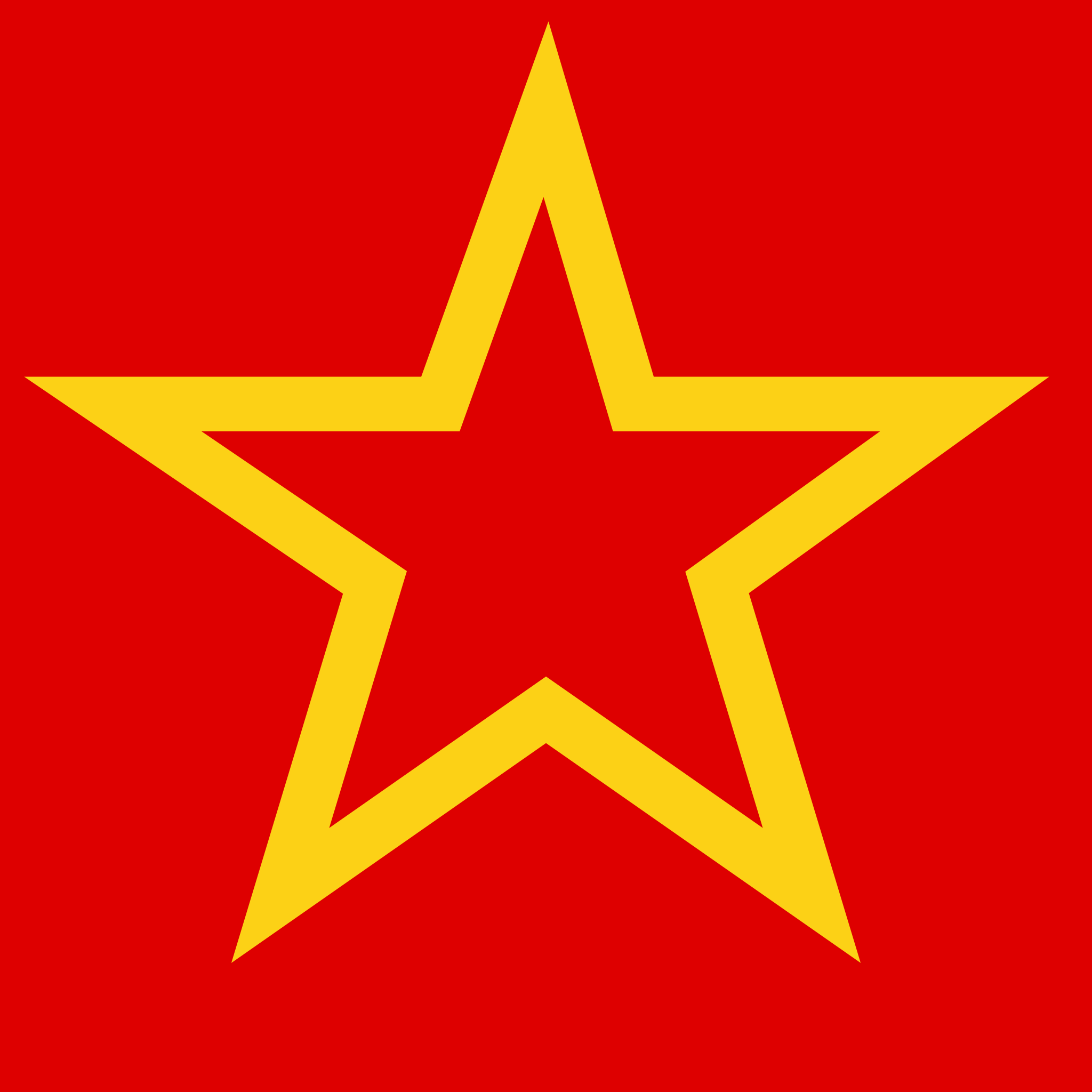(I didn’t, largely since I’ve never watched a single episode, but the psychic damage and whiplash of Wholesome Pony Show having said this line was too fuckn much for me)
EDIT: More replies than upbears now. It’s probably an official struggle session now (although most of it is that one person). One must imagine SisyFEWs happy.
deleted by creator
I’ll always have a soft spot for it because it was a cute and happy show that I watched during a very dark and isolating time in my life, but goddamn if it doesn’t have just the absolute worst fucking values in retrospect. It’s not the worst thing liberals have made, certainly, but it is exactly what you said: just peak liberal fantasy where monarchism is fine as long as it’s nice and a horribly inequitable society is charming and happy so everything’s fine.
Pony Stalin
is this site trying to turn me into an MLP fangirl now
Pony Stalin
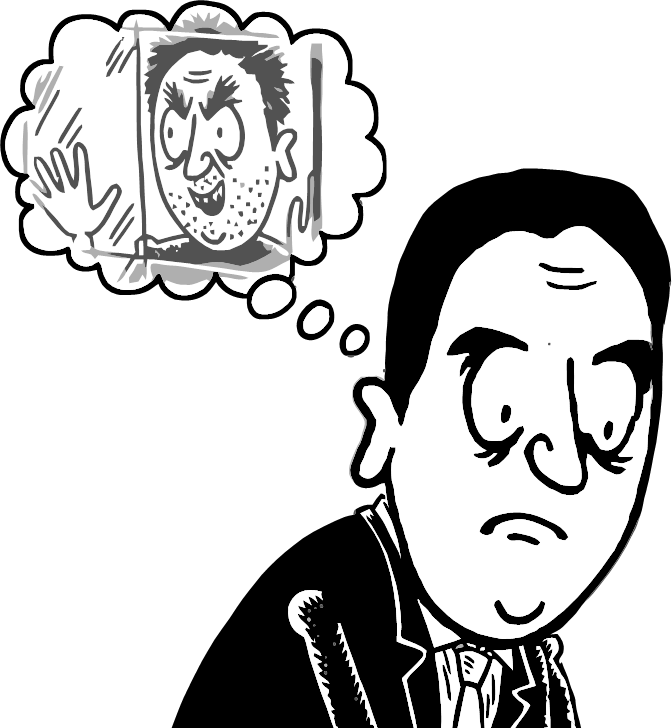
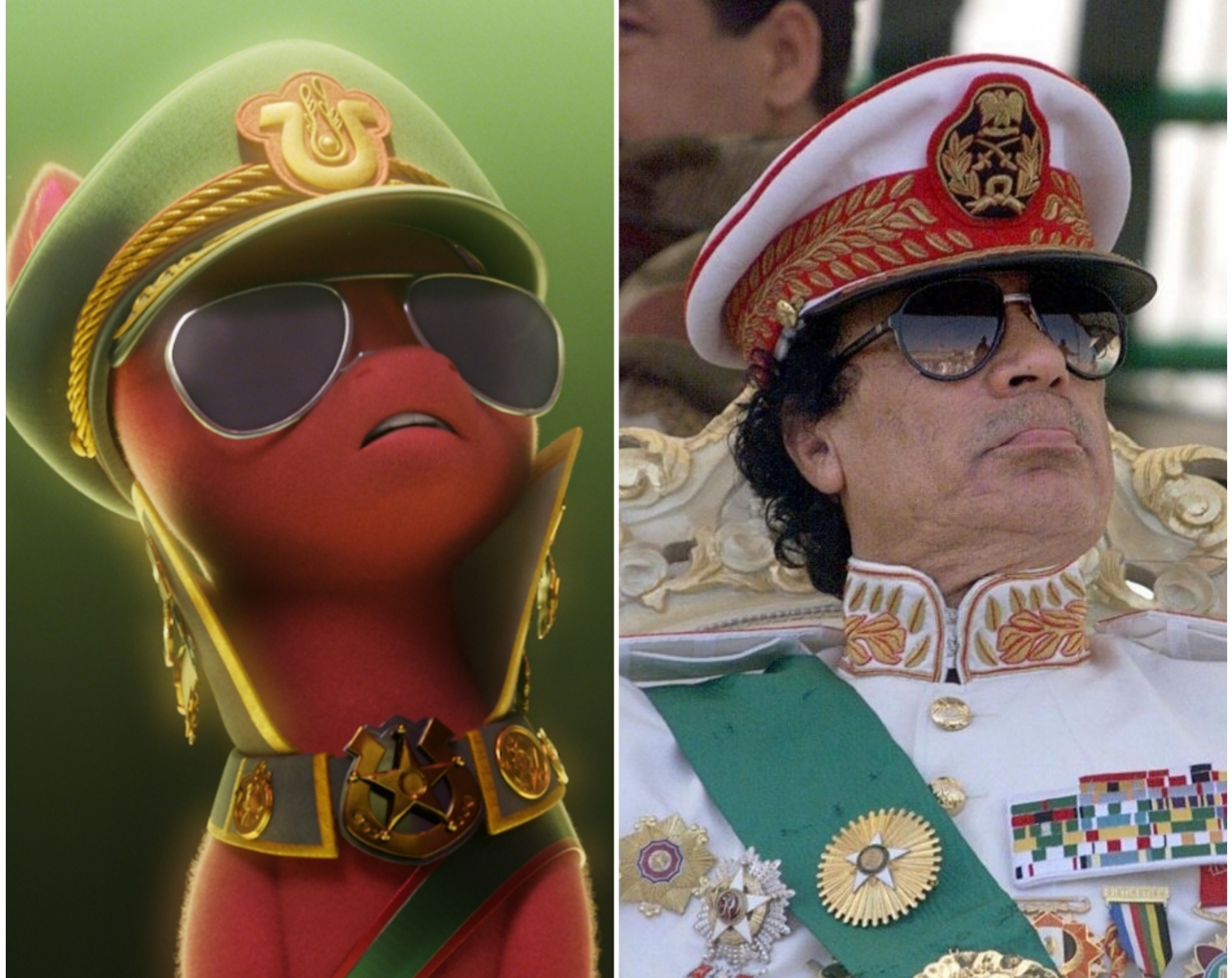
Wish I could’ve read that writeup. It sounds good.
Aren’t the ponies assigned to various jobs at birth or something? Like they have a magical inclination to be lower class or whatever.
I’ve never watched this cartoon and I don’t know shit but from the little I know about their society it did seem like a capitalist realism framework
deleted by creator
you might find yourself wondering something like “what if a pony’s special talent is something they can’t get paid for doing” or “where did the fashionista pony get the startup capital for her dressmaking business”.
Or “what the Hell is Fluttershy’s business model? Do the animals have money?”
The show mostly sidesteps questions of exploitation by depicting every main character as an artisan with no employees
The “fashionista pony” does have employees, albeit in her Manehattan boutique instead of her studio in Ponyville.
Also, Pinkie Pie is an employee of Mr. and Mrs. Cake.
deleted by creator
Yeah, that subplot was introduced around season 4-5 I believe.
From the shape of this pony’s skull we can see they are a rainbow flutter shy
The HOI4 MLP mod (which is, by far, the best made HOI4 mod) has Our Town join the larger more successful communist state of Stalliongrad, which it bordered.
Apple Jack is giving Twilight Sparkle the evil eye because she just lent her her copy of “Hammer and Hoof: Ponyville Communists During the Great Depression” but doesn’t seem to have even read it or any older works by writers like Kyüti Marx.
Removed by mod
deleted by creator
Its utterly ahistorical and revisionist, but at least serves to try and smooth the contradiction between working-class migrants and their native peers. Its also a children’s TV show, so if you’re not getting the full dialectical history of three centuries of Western Frontier politics… eh.
At some level, kids TV should just steer clear of this shit entirely, because you’re not going to do it justice. But of all the shows I’m going to shit on for being liberal propaganda, MLP is trending towards the bottom of the list. I wish they had just… not. But also I live in a liberal hellscape so I’m not going to cry over a relatively minor offense.
I dunno, Molly of Denali did a pretty good job of presenting it.
https://en.wikipedia.org/wiki/Molly_of_Denali
Molly of Denali (stylized as MOLLY of DENALI) is an animated children’s television series produced by Atomic Cartoons in association with WGBH Kids, created by Dorothea Gillim and Kathy Waugh for PBS Kids and CBC Kids. It premiered on July 15, 2019, and is the first American nationally distributed children’s show to feature an Alaska Native as the lead character. Thirty-eight half-hours were produced for season 1, which has a 50-minute special as its season finale.A special live-action segment filmed in Alaska airs between the two 11-minute story segments.
On April 6, 2021, it was announced that the show had been renewed for two more seasons, whose second season premiered on November 1, 2021, and ended on October 10, 2022, after 14 episodes. The third season premiered on November 7, 2022.
glad to know PBS Kids is still green-lighting new shows
PBS my beloved (my parents did not pay for cable)
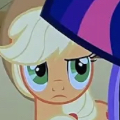
Applejack (the pony highlighted in the image) is on the settlers’ side in that episode
Fucking labor aristocrat
I spend all day toiling in the meme mines and this is how you repay me
She’s angered she can’t simply do as Granny Apples did and burn down the rest of the buffalo villages for more orchard space.
Removed by mod
centrism is when the inconvenient fact of the indigenous people who cared about the buffalo population aren’t even worth a mention.
(it occurs to me the possibility that the buffalo are explicitly a stand-in for indigenous people, but please don’t try to tell me that makes it better. otherwise, i’d like to show you a picture of some random frankish warrior and tell you that both the mongols and the europeans have use of the european peninsula. lottttta different nations and peoples to be mashing together into one representative that can’t have revolutionary intent right there.)
Unfortunately I regret to inform you the buffalo are native stand ins yes. The show is… Exceedingly bad about racializing characters.
There is for instance one zebra character on the show. Her introductory episode was about everyone doing racism towards her. She lives in a Darkest Africa themed voodoo shack in the middle of the Bad Forest, speaks in rhyme, and has gold bands around her neck. She was introduced in season like… 2, and the show ended on 9 seasons, and no other characters as racialized as her showed up
deleted by creator
deleted by creator
deleted by creator

If I could go back in time and retroactively erase one episode of the show from existence, it’d be this one
a post about my little pony in 2023
over 100 comments

I NEVER MEANT FOR THIS
deleted by creator
The hatred of My Little Pony’s was the precursor to modern online fandom discourse. People’s online response to this show (good, bad, or indifferent) warped how the internet talks about fandom in a major way and online culture as whole in a lesser extent.
People’s response to this show (good, bad, or indifferent) warped how the internet talks about fandom and online culture.
On a positive note, though, I think it was also legitimately a gateway to questioning gender norms for a lot of people.
Removed by mod
Does that mean you got horsefemmed?

Removed by mod
deleted by creator
Anne Boonchuy
Removed by mod

The MLP fandom died because all the people who liked it because they were closeted eggs realized they could just be trans and all the people who liked it because they were closeted furries realized they could just be furries and all the people who liked it because they were closeted fascists realized they could just be fascists.
I think it was also legitimately a gateway to questioning gender norms for a lot of people.
It was a weird path to a win, but a win regardless! Living one’s truth because a cartoon helped get one there is just as valid a reason as any other in my book.
I think a lot of the backlash was rooted in misogyny. “Oh no, how dare men like girl thing”
Remember that a big chunk of the historical fandom was weirdo fascist edgelords who wanted to fuck the ponies and wrote horny violent fanfics about them. One of the longest fanfics about anything (FOE:PH) is basically “Made in Abyss but it’s ponies and set in a post apocalyptic wasteland.”
FOE:PH
Oh God, I remember hearing talk about how terrible this was and having a peek out of morbid curiosity. I made it maybe a quarter of the way through the first chapter before I had to dip out at the exhaustively described fever dream of what MRAs imagine a society run by feminists would look like.
deleted by creator
That was all of the Fallout crossover fanfics
deleted by creator
The most infamous of those is the one I mentioned, Fallout Equestria: Project Horizons, but the original Fallout Equestria was also pretty bad just much, much more tame than FOE:PH was.
deleted by creator
It predates it, but it is similar in tone and grotesqueness. Although thinking about the full depth of the problems with Made in Abyss that I covered exhaustively in a post last night, FOE:PH isn’t as bad. It’s a gratuitous, edgy spectacle that handles problematic themes poorly, but it’s merely making an exploitative spectacle of them while Made in Abyss is even worse. AFAIK most of the characters in Project Horizons are adults though, though I think there’s some nonce stuff in there too.
It’s also written for 5-year-olds though.
Mario and Pokemon are for children too and nobody gives a shit if you like them as an adult
Mario is the tale of a union man taking mushrooms and rescuing his side piece from a human trafficking dinosaur. Pokemon is about a kid winning a series of cockfights and taking down the mafia. For kids? Hardly.

Tell me how good Dragon Tales is next.
Removed by mod
MLP is literally for babies that barely comprehend language and operates as such.
You clearly don’t actually know anything about the show and you’re just going off of either your own assumptions or what other people have told you. I’d explain why you’re wrong, but I’ve dealt with enough people like you to know you’d just double down. You don’t have any good reason for believing what you believe. You just want an excuse to feel superior to other people.
Removed by mod
Histerical
There’s the misogyny! Thank you for helping prove the point of my original comment

Removed by mod
deleted by creator
Removed by mod
deleted by creator
deleted by creator
deleted by creator
It was originally written by the same person who wrote Powerpuff Girls and a lot of the humor is similar in the sense that it appeals to both kids and older viewers.
Removed by mod
I thought she was a writer for that as well though?
Removed by mod
Ah, ok. In that case I should clarify that while she wasn’t officially the show creator, I do think a lot of the writing and jokes are similar between the two.
The show’s sudden widespread popularity always felt like a western version of Japanese otaku culture to me. People were making their own comics, fanart, radio plays, etc. It was like doujin circles. They even would stalk the voice actresses like creeps.
It’s always been interesting to me how closely otaku and western nerds will come to imitating one another without significant contact with the other. There’s like a platonic ideal of weird creepy nerd they’re all drawing from in the ether. They even have their own weird fascist contingents. Japan invented incels too like in the 80s.
Really makes you wonder. This has to be the latest iteration of a longstanding phenomenon, yeah? Cus I just cannot imagine that sort of personality was just spontaneously generated by access to the internet.
I mean this painting exists
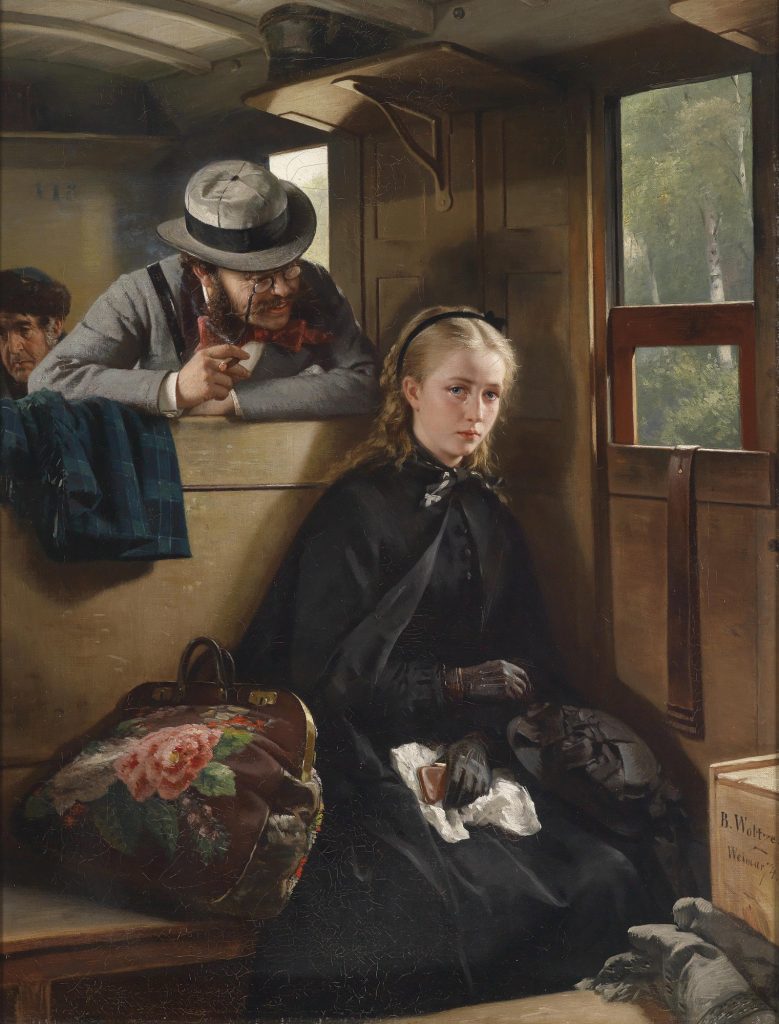
I’ve always thought there had to have been weird obsessives in like 1850 who spent too much time on the telegraph
You’re always clacking away at the teleprinter, why don’t you go out and make some friends?
deleted by creator
deleted by creator
What the hell have I wrought

deleted by creator
deleted by creator
deleted by creator
deleted by creator
deleted by creator
Maybe it’s rooted in weird gender coding stuff? I do find it odd the selective salty-ness of the net being weirded out by one children’s animated television show but not another. I’m not even on the “let people enjoy things” tip, but it’s just weird the show about unicorns, rainbows, and friendship gets mad hate but if it were a show about kiddos fist fighting against the forces of evil and you get a pass.
It’s always just “You are grown, you are watching a show for girls.” It’s never any valid leftist critique one could probably make in a integrious way like the original poster talking about centrism for example.
Personally I don’t rock with MLP. However, I dig lots of the new generations cartoons like “Adventure Time” and “Rise of the TMNT” which are “for boys” but no one bugs out about that. Which is kinda telling to me.
As if we all didn’t go see Barbie by the way. A movie about a product “for babies”.
Maybe it’s rooted in weird gender coding stuff?
A lot of it is, “girly” media are constantly ridiculed and villified to an extent that hypermasculine Vin Diesel shlock never is. but ima be honest here, what put me off in regards to MLP where the fedora guys fantasizing about horse ass all day.
deleted by creator
I feel like I’ve seen both of these films by way of people’s reactions to them
I’ve actually seen neither
This is how I see most films these days
deleted by creator
I haven’t seen this episode, but could it be possible that Twilight Sparkle is simply talking about how material conditions drive historical change, rather than trying to morally justify the actions of the settlers? She is the book nerd of the group, so it would make sense that she’s read theory and is maybe attempting a Marxist analysis of settler-colonialism in Equestria.
No, it’s literally just a call to stop the active conflict. That happens by letting the settlers keep all the land but giving the buffalo a stipend of food. Like it’s so absurdly egregious that there’s no soft reading of it in context.
It also establishes the situation with the land use as a dichotomy between the settlers making productive use of the land vs the buffalo just leaving it barren and stomping around in it for fun. It does basically everything wrong, right up to its conclusion being that the buffalo stop resisting and just accept that the land isn’t theirs anymore, but they get a little bit of food thanks to the “productive” use of their land by settlers. It is basically a manifest destiny storybook narrative.
Ok, yeah, that sounds pretty bad.
Uncritical support to the landless peasant buffalo in their struggle against Twilight Sparkkkle and her fellow pony settler-colonialists.

lmao that’s so bad wtf, they’re putting this shit in cartoons? Western kids never had a chance
🥰
In this essay, I will
For shits and giggles I asked ChatGPT to generate a Marxist analysis of the episode, and this was the result:
My Little Pony: Friendship is Magic" (MLP: FiM) can be analyzed from a variety of perspectives, and using Marxist theory is certainly one way to provide a critique of its content and subtexts. “Over a Barrel” is a particularly relevant episode for this, as it deals directly with themes of colonization, land disputes, and cultural understanding.
-
Commodification and Land Ownership: The episode starts with the ponies transporting an apple tree, Bloomberg, to a distant town. This act in itself is a symbol of commodification – transforming nature into a product. The tree becomes a symbol of Applejack’s capitalist endeavors, a means of expanding her apple business.
-
Colonization and Native Rights: When the ponies reach the town of Appleloosa, they discover that the settler ponies are in a dispute with the buffalo over the land. The buffalo claim that the land belongs to them and that they need it for their traditional stampeding grounds. The settler ponies, on the other hand, have begun to build a settlement and apple orchards on the land. This can be viewed as a parallel to historical colonization where indigenous populations were often pushed out of their traditional lands by settlers.
-
Cultural Hegemony: The settler ponies, representing the dominant cultural force, display a lack of understanding or respect for buffalo traditions. The ponies’ expansion and settlement could be seen as an example of Gramsci’s concept of cultural hegemony – where one group’s cultural norms and values dominate and marginalize those of other groups.
-
Conflict and Class Struggle: The central conflict between the buffalo and the settler ponies can be interpreted as a class struggle. The buffalo represent the oppressed proletariat, whose traditional ways and means of subsistence (the stampede) are threatened by the bourgeoisie represented by the settler ponies. The settler ponies’ apple orchard, particularly Bloomberg, can be seen as means of production, which they control at the expense of the buffalo’s traditional ways.
-
Resolution and the Status Quo: The conflict is eventually resolved through compromise. The buffalo agree to let the apple orchard stay as long as there’s a path for them to stampede. While this seems like a happy ending, from a Marxist perspective, it can be viewed as maintaining the status quo. The bourgeoisie still controls the means of production (the apple orchard) while the proletariat (buffalo) have to adjust their traditional ways to fit the needs of the dominant class.
-
Interpersonal Relationships vs. Systemic Issues: One could critique the episode for resolving a systemic issue – colonization and land rights – through personal understanding and friendship. While interpersonal understanding and communication are important, they often don’t address the underlying systemic issues. From a Marxist standpoint, this could be seen as an oversimplification of the complexities of class struggle.
Conclusion: “Over a Barrel” provides a narrative that touches upon complex themes of colonization, land rights, and cultural hegemony. While the episode promotes understanding and friendship as a means to resolve conflicts, from a Marxist lens, it can also be interpreted as a narrative that simplifies systemic issues and supports the status quo. The episode offers a valuable platform for discussions on historical and ongoing struggles between indigenous populations and settler communities.
Ok, I like chatbot now
I don’t; that was terrifyingly sentient.
-
I like that you thought it was more likely that midnight sparkle was a Marxist than it was that a TV show made to advertise toys was liberal.
I must confess that I may not have been entirely serious when I talked about characters from My Little Pony analyzing conflict through a Marxist lens.
could it be possible that Twilight Sparkle is simply talking about how material conditions drive historical change,
Marxists: “I love indigenous!”
also Marxists: (shrieking about how “non-historical peoples” deserved to be genocided)
Buffalo Skulls by Aaron Bady
my god, that header image is haunting
Settlers: the myth of the pony proletariat
deleted by creator
Horses have no business on indigenous lands, were brought by imperialist genociders and destroyed the habitats.
I think horses were originally native in the Americas and only dissappeared about 10,000 years before the Spanish brought them back
So, they’re not like US settlers, they’re like Israeli settlers.
Lmao!
"My Little Lenin: A Marxist-Leninst Analysis of “My Little Pony: The Movie”
Critical support to Our Town in their fight against the Feudal-Bourgeois imperial hegemony of Equestria
